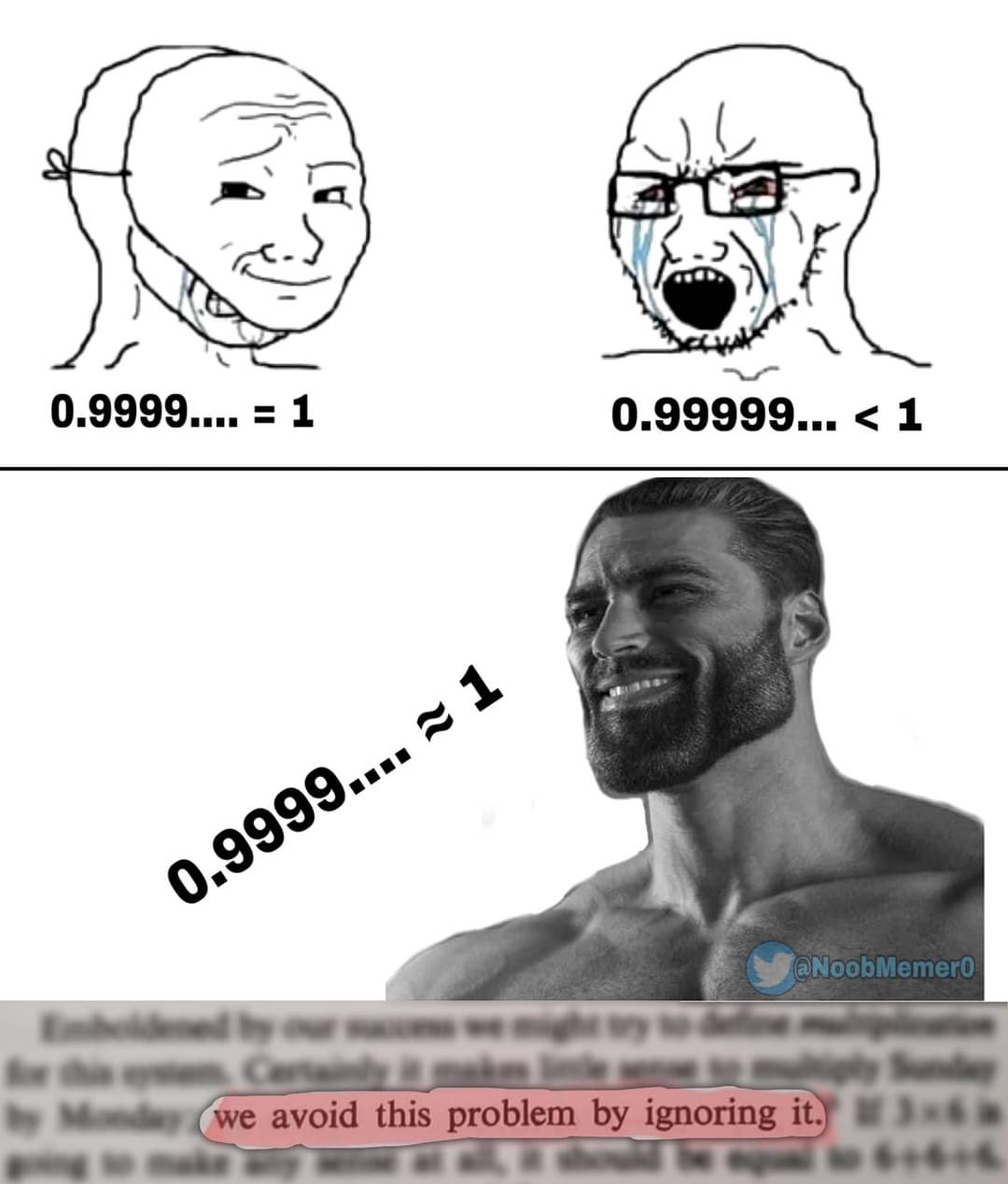this post was submitted on 27 Jun 2024
813 points (95.2% liked)
Science Memes
11068 readers
2779 users here now
Welcome to c/science_memes @ Mander.xyz!
A place for majestic STEMLORD peacocking, as well as memes about the realities of working in a lab.

Rules
- Don't throw mud. Behave like an intellectual and remember the human.
- Keep it rooted (on topic).
- No spam.
- Infographics welcome, get schooled.
This is a science community. We use the Dawkins definition of meme.
Research Committee
Other Mander Communities
Science and Research
Biology and Life Sciences
- !abiogenesis@mander.xyz
- !animal-behavior@mander.xyz
- !anthropology@mander.xyz
- !arachnology@mander.xyz
- !balconygardening@slrpnk.net
- !biodiversity@mander.xyz
- !biology@mander.xyz
- !biophysics@mander.xyz
- !botany@mander.xyz
- !ecology@mander.xyz
- !entomology@mander.xyz
- !fermentation@mander.xyz
- !herpetology@mander.xyz
- !houseplants@mander.xyz
- !medicine@mander.xyz
- !microscopy@mander.xyz
- !mycology@mander.xyz
- !nudibranchs@mander.xyz
- !nutrition@mander.xyz
- !palaeoecology@mander.xyz
- !palaeontology@mander.xyz
- !photosynthesis@mander.xyz
- !plantid@mander.xyz
- !plants@mander.xyz
- !reptiles and amphibians@mander.xyz
Physical Sciences
- !astronomy@mander.xyz
- !chemistry@mander.xyz
- !earthscience@mander.xyz
- !geography@mander.xyz
- !geospatial@mander.xyz
- !nuclear@mander.xyz
- !physics@mander.xyz
- !quantum-computing@mander.xyz
- !spectroscopy@mander.xyz
Humanities and Social Sciences
Practical and Applied Sciences
- !exercise-and sports-science@mander.xyz
- !gardening@mander.xyz
- !self sufficiency@mander.xyz
- !soilscience@slrpnk.net
- !terrariums@mander.xyz
- !timelapse@mander.xyz
Memes
Miscellaneous
founded 2 years ago
MODERATORS
you are viewing a single comment's thread
view the rest of the comments
view the rest of the comments

There are a lot of concepts in mathematics which do not have good real world analogues.
i, the _imaginary number_for figuring out roots, as one example.
I am fairly certain you cannot actually do the mathematics to predict or approximate the size of an atom or subatomic particle without using complex algebra involving i.
It's been a while since I watched the entire series Leonard Susskind has up on youtube explaining the basics of the actual math for quantum mechanics, but yeah I am fairly sure it involves complex numbers.
i has nice real world analogues in the form of rotations by pi/2 about the origin (though this depends a little bit on what you mean by "real world analogue").
Since i=exp(ipi/2), if you take any complex number z and write it in polar form z=rexp(it), then multiplication by i yields a rotation of z by pi/2 about the origin because zi=rexp(it)exp(ipi/2)=rexp(i(t+pi/2)) by using rules of exponents for complex numbers.
More generally since any pair of complex numbers z, w can be written in polar form z=rexp(it), w=uexp(iv) we have wz=(ru)exp(i(t+v)). This shows multiplication of a complex number z by any other complex number w can be thought of in terms of rotating z by the angle that w makes with the x axis (i.e. the angle v) and then scaling the resulting number by the magnitude of w (i.e. the number u)
Alternatively you can get similar conclusions by Demoivre's theorem if you do not like complex exponentials.